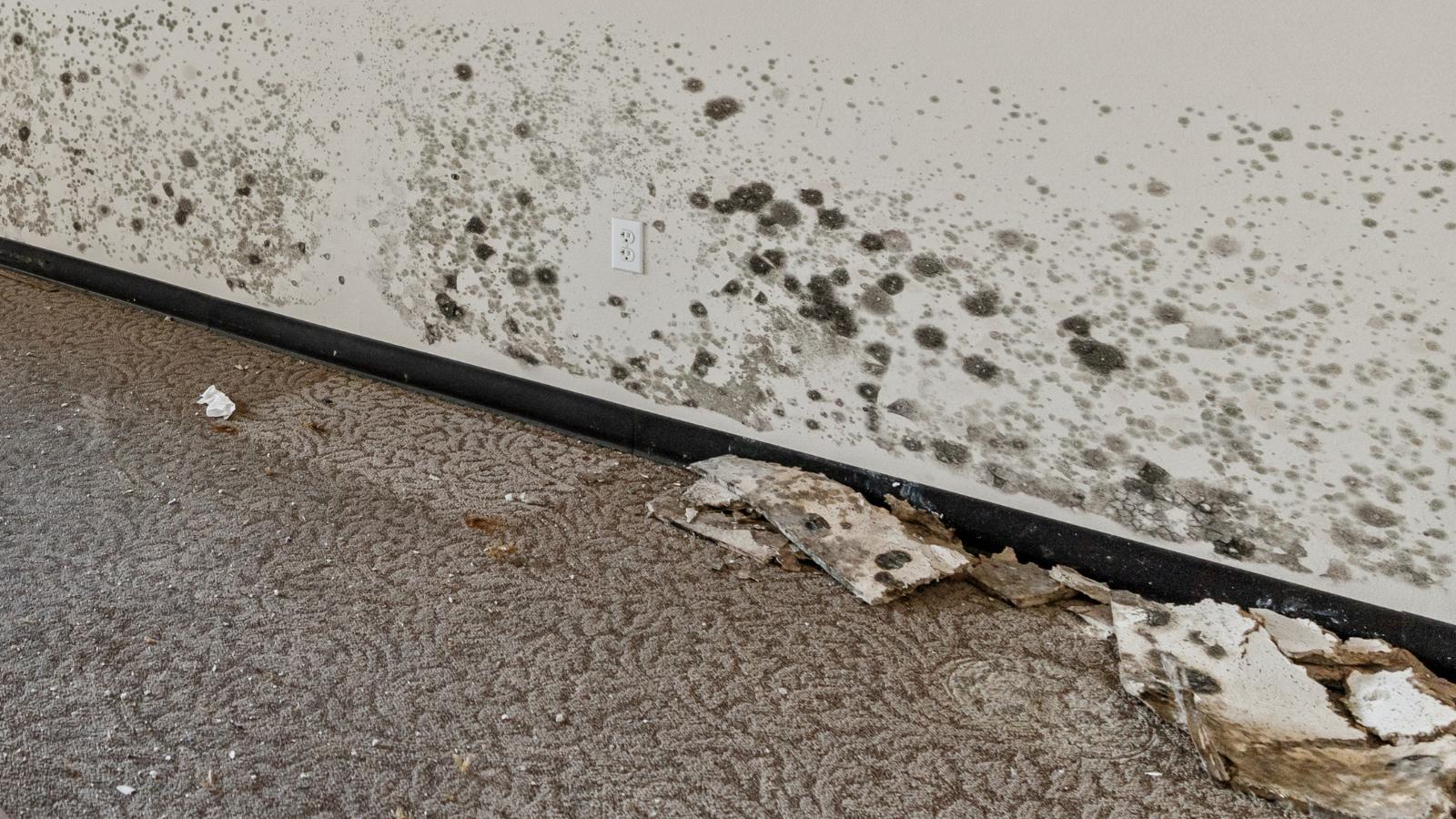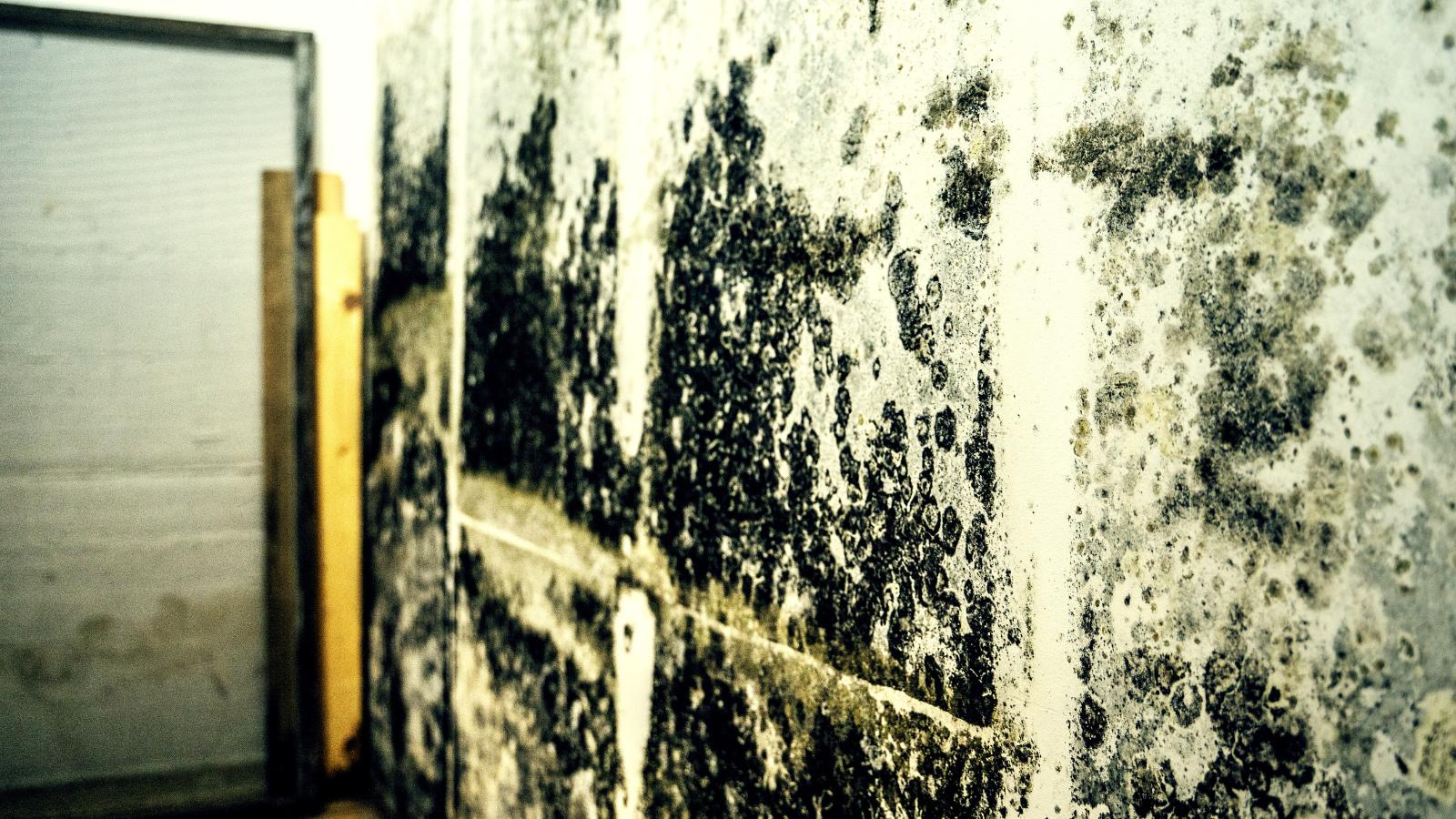7 Must-Know Signs of Dangerous Mold in Your Building
Mold is not only smelly and disgusting, it can also be dangerous. And when spores get into the air in your building, they can be nearly impossible to...

Over the years, our team at CRC has encountered numerous misconceptions surrounding mold. Today, we aim to dispel a few of these myths and provide you with the facts. By understanding the truth about mold, you can make informed decisions when it comes to managing mold in your commercial building. It's crucial to remember that while mold can be a serious issue, there's no need to panic. By gaining more knowledge about mold, you can deal with it appropriately and effectively.
Many people have a negative perception of mold, but it's important to recognize that not all molds are harmful. In fact, certain molds have been instrumental in the development of life-saving medications, such as penicillin. Additionally, some molds are responsible for the delicious flavors found in certain types of cheeses, like blue cheese. So, while mold may initially seem unpleasant, it's essential to understand that there are benefits to specific molds.
However, identifying the type of mold you're dealing with can be challenging, and it's crucial to remember that some molds can indeed cause problems. Certain molds can release allergens that can trigger health issues in individuals with compromised immune systems or sensitivities. Common symptoms include breathing difficulties, itchy eyes, headaches, and more. For these individuals, mold remediation is necessary to eliminate the mold and reduce the risk of further health problems.
It's also important to recognize that it's impossible to completely eliminate mold spores from our environment. Mold spores are present in the air we breathe, and it's only when they accumulate in high concentrations indoors that they become problematic. While some mold presence is natural and unavoidable, it should not be growing on walls or other surfaces. This concentrated amount of mold can lead to structural damage and health issues, making mold remediation services essential.
When it comes to misconceptions about mold, one of the biggest myths is that all molds can cause health problems. However, it's important to understand that the effects of mold can vary greatly depending on the individual and the specific type of mold. While molds can be responsible for certain types of allergens, not everyone may be affected by these allergens.
That being said, there are individuals who are highly sensitive to mold allergens, especially those with compromised immune systems. For these individuals, mold can be dangerous and require professional mold remediation. Repeated exposure to mold can lead to the development of sensitivities and additional health issues, such as breathing difficulties, itchy eyes, bloody noses, headaches, and more. On the other hand, some individuals may remain immune to these effects.
It's important to recognize that the impact of mold on health can vary and that mold remediation may be necessary for those who are sensitive to mold allergens.
One common misconception about mold is that it must be completely eliminated. However, it's important to recognize that mold spores are present in the air we breathe, and it is virtually impossible to avoid them entirely. The real issue lies in the concentration of mold within your building. Mold should not be flourishing on your walls or other surfaces, as this can lead to significant problems.
While it's true that we all coexist with mold to some extent, there is a concern about the level of exposure people should have indoors. If you suspect that mold is the cause of your health issues, it may be beneficial to seek professional mold remediation services, such as the ones we provide at CRC.
This is a common misconception about mold that has some truth to it. While it is true that certain molds on specific non-porous surfaces can be eliminated with bleach, it's important to note that bleach itself can be harmful to human health. Furthermore, the effectiveness of bleach in dealing with mold is still being researched. Due to these health risks and the potential damage bleach can cause to materials, it is not recommended for cleaning up mold issues. In fact, using bleach can even spread mold further, which is why it is crucial to seek professional mold removal services for a safe and effective solution.
Killing mold is merely the first step in addressing a mold issue. While eliminating the visible mold is important, it's essential to recognize that killing mold does not remove all the allergens associated with it. These allergens can still be present even if the mold has been killed.
To truly mitigate health problems caused by mold, it's necessary to go beyond simply killing it. This often involves removing or deep cleaning the affected materials. By doing so, you can eliminate the potential for the mold to spread and reduce the continued mold exposure that contributes to health problems.
Removing or deep cleaning the affected materials is crucial because mold can release spores and mycotoxins, even if it's dead. These allergens can remain in the air and on surfaces, posing a risk to individuals with sensitivities or compromised immune systems. By thoroughly removing or cleaning the affected materials, you can significantly reduce the concentration of these allergens, minimizing the potential for health issues and creating a healthier environment.
Additionally, removing or deep cleaning the affected materials helps prevent mold from regrowing. Mold can penetrate porous materials, such as drywall or carpet, making it difficult to completely eliminate without professional intervention. By removing or deep cleaning these materials, you can remove any remaining mold spores and prevent future growth.
Mold is naturally occurring but that does not mean it is harmless. If you allow mold to gain a solid foothold in an area of your building, the repeated exposure to the mold allergens comes with an increased risk of health troubles. Additionally, mold can cause the materials in your building to deteriorate. This deterioration can cause serious structural problems. If you have mold, the best course of action is quick, professional, and effective mold removal.
If you can see mold on a surface, it is likely you have a much larger problem than you realize. Mold is a bit like icebergs: most of the mold exists below the surface, hidden from view. This means that if you spot mold on a wall or any other surface, there is a high probability that there is a larger amount growing beneath the surface that you may not be able to see.
When mold is visible, it often indicates a deeper and more extensive issue. Mold spores can easily travel through the air and settle on various surfaces, leading to the growth of mold colonies. These colonies can spread rapidly and infiltrate hidden areas such as behind walls, under flooring, or within ceiling cavities. This hidden mold growth can cause significant damage to the structure of your building and pose serious health risks to occupants.
Proper mold cleanup is not a task that should be taken lightly. While it may be tempting to attempt a do-it-yourself approach, it's important to recognize that some molds require the expertise of a professional. While there are certain types of mold that can be effectively handled with a DIY cleanup in small quantities, there are others that demand the skills and equipment of a trained mold remediation specialist.
When it comes to proper mold cleanup, there are several important steps that need to be followed. First and foremost, it is crucial to identify the source of the mold growth to prevent it from reoccurring. This requires a thorough inspection of the affected area, including both visible and hidden spaces. A professional mold remediation specialist has the expertise to identify the root cause of the mold growth and implement the necessary measures to prevent future outbreaks.
In addition to identifying the source, proper mold cleanup involves isolating and removing the affected surfaces. This may require the use of a containment unit to prevent the spread of mold spores to other areas of the building. A commercial HEPA filtration unit is also essential to ensure that airborne mold spores are effectively filtered out, minimizing the risk of cross-contamination.
When it comes to removing mold from surfaces, specialized equipment such as HEPA vacuums and wet extraction methods are often required. These tools are designed to safely and effectively remove mold spores and contaminated materials, leaving the area clean and free from potential health hazards. Additionally, specialized cleaning agents may be necessary to effectively eliminate mold and prevent its regrowth.
It's important to recognize that proper mold cleanup requires not only the right equipment but also the knowledge and experience to use it effectively. Mold remediation professionals undergo extensive training to ensure they are equipped with the skills and expertise needed to handle mold issues safely and efficiently. They understand the potential risks associated with mold exposure and take the necessary precautions to protect themselves and others during the cleanup process.
While it may be tempting to try and tackle mold cleanup on your own, it's important to consider the potential risks and limitations. Without the proper equipment and expertise, DIY cleanup efforts may not effectively eliminate the mold problem, leading to further damage and potential health risks. Hiring a professional mold remediation specialist ensures that the job is done right the first time, giving you peace of mind and a healthier environment.
So, if you're facing a mold issue in your commercial building, it's always best to seek the help of a professional mold remediation service like CRC. With our expertise and specialized equipment, we can effectively identify and eliminate mold, preventing its recurrence and ensuring the safety and well-being of your building occupants. Don't take chances with mold, trust the professionals to handle it properly.

Mold is not only smelly and disgusting, it can also be dangerous. And when spores get into the air in your building, they can be nearly impossible to...

1 min read
Mold and mildew are both fungi, but mold poses a far greater risk in commercial buildings. Mildew typically stays on the surface and is often...
.jpg)
Mold issues in commercial buildings can have far-reaching consequences, impacting both the well-being of individuals and the integrity of the...